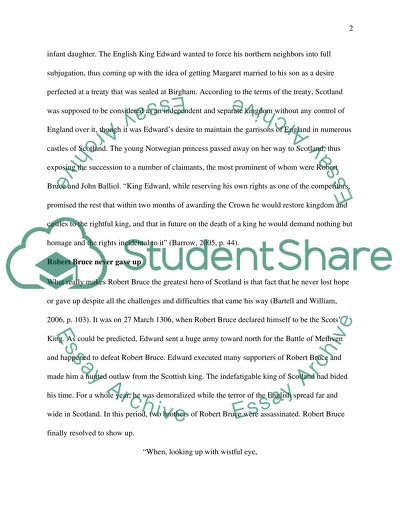Cite this document
(“Does Robert Bruce deserve to be remembered as a great Scottish king Essay”, n.d.)
Does Robert Bruce deserve to be remembered as a great Scottish king Essay. Retrieved from https://studentshare.org/history/1479100-does-robert-bruce-deserve-to-be-remembered-as-a
Does Robert Bruce deserve to be remembered as a great Scottish king Essay. Retrieved from https://studentshare.org/history/1479100-does-robert-bruce-deserve-to-be-remembered-as-a
(Does Robert Bruce Deserve to Be Remembered As a Great Scottish King Essay)
Does Robert Bruce Deserve to Be Remembered As a Great Scottish King Essay. https://studentshare.org/history/1479100-does-robert-bruce-deserve-to-be-remembered-as-a.
Does Robert Bruce Deserve to Be Remembered As a Great Scottish King Essay. https://studentshare.org/history/1479100-does-robert-bruce-deserve-to-be-remembered-as-a.
“Does Robert Bruce Deserve to Be Remembered As a Great Scottish King Essay”, n.d. https://studentshare.org/history/1479100-does-robert-bruce-deserve-to-be-remembered-as-a.


